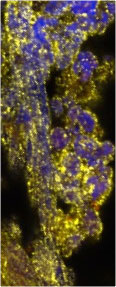Faculty Profile
 Robert J. Schwartz
Robert J. Schwartz
Hugh Roy and Lillie Cranz Cullen Distinguished Professor
Department of Biology and Biochemistry
Research Division: Biochemistry (Primary)
Office: Science & Engineering Research Center, 4004
Contact: rjschwartz@uh.edu - (832) 630-1094
Education: Ph.D. Biology, University of Pennsylvania
Dr. Robert Schwartz is a pioneer in defining the regulatory paradigm in which non-muscle contractile proteins are switched off during muscle differentiation and replaced by muscle specific contractile protein isoforms. Several years ago, Schwartz then identified SRF as the only transcription factor required for sarcomere formation. Recently, Schwartz turned his attention to directed trans-differentiation of somatic cells to cells of other lineages, offering a new avenue for stem cell replacement therapy.
Schwartz’ research team explored the role of mammalian ETS1/2 and Mesp homologues of cardiogenic transcription factors of Ciona intestinalis, to convert primary human dermal fibroblasts into cardiac progenitors. Co-expression of both Ets2 and Mesp1, successfully reprogrammed human skin fibroblasts into cardiac progenitors, as shown by the de novo appearance of core cardiac transcription factors, gap junction proteins, sarcomeric proteins, electrical activity, and contractility. ETS2 and Mesp1 sit at the pinnacle of the cardiopoiesis regulatory hierarchy. Generating cardiac progenitors from fibroblasts is one of the most important milestones in contemporary biology. These efforts will help to identify other optimal cell types such as human adipogenic stem cells for such therapy and are designed to overcome technical and ethical issues involved in using embryonic stem cells. Ultimately, to reconstitute a human heart, the vision is to grow these engineered cells on artificial biomatrices and to treat diseased human hearts.
Schwartz has received 17 U.S. patents and co-founded three companies. He earned his B.S. from Brooklyn College and his Ph.D. in Biology from the University of Pennsylvania.

Conversion of Human Adipogenic Stem Cells into Cardiac Myocytes
- Islas JF, Liu Y, Weng KC, Robertson MJ, Zhang S, Prejusa A, Harger J, Tikhomirova D, Chopra M, Iyer D, Mercola M, Oshima RG, Willerson JT, Potaman VN, Schwartz RJ. 2012 Transcription factors ETS2 and MESP1 transdifferentiate human dermal fibroblasts into cardiac progenitors. Proc Natl Acad Sci U S A. 109:13016-13021.
- Soibam B, Benham,A., Kim, J., Weng, K.C., Yang, L., Xu, X., Robertson, M., Azares, A., Cooney4 A.J., Schwartz, R.J., and Liu, Y. 2015 Genome-wide identification of MESP1 targets demonstrates primary regulation over mesendoderm gene activity. Stem Cells. 33(11):3254-3265
- Ma Y, Wang J, Yu Y, Schwartz RJ. PKG-1α mediates GATA4 transcriptional activity. Cell Signal. 2016; 28:585-594
- Stewart MD, Lopez S, Nagandla H, Soibam B, Benham A, Nguyen J, Valenzuela N, Wu HJ, Burns AR, Rasmussen TL, Tucker HO, Schwartz RJ. Mouse myofibers lacking the SMYD1 methyltransferase are susceptible to atrophy, internalization of nuclei and myofibrillar disarray. Dis Model Mech. 2016 ;9:347-359.
- Liu,Y., Chen, L., Diaz,A., Benham, A., Xu,X., Wijaya, C.S., Fa’ak,F., Luo,W., Soibam, B., Azares, A., Yu, W., Lyu, Q., Stewart, M.D., Gunaratne, P., Cooney, A., McConnell, B.K., Schwartz, R.J. Mesp1 Marked Cardiac Progenitor Cells Repair Infarcted Mouse Hearts. Scientific Reports July 18, 2016
Honors and Awards:
1999 - 2004 Co-Director, Center for Cardiovascular Development, Baylor College of Medicine, Houston, Texas.
2005 - 2009 Director and Professor, Institute of Biosciences and Technology, Texas A&M University System Health Science Center, Houston, Texas.
2005 - 2009 Director, Molecular Development and Disease Center, Institute of Biosciences and Technology, Texas A&M University System Health Science Center, Houston, Texas
2008 - Present Director, Stem Cell Laboratory and Research Professor, Texas Heart Institute, Texas Medical Center, Houston, Texas.
Organizations, Outreach, Boards, Memberships:
Member, Cardiac Development and Disease NIH Study section (2009-2013)
Cullen Distinguished Professor of Biology and Biochemistry, University of Houston (2009-present)